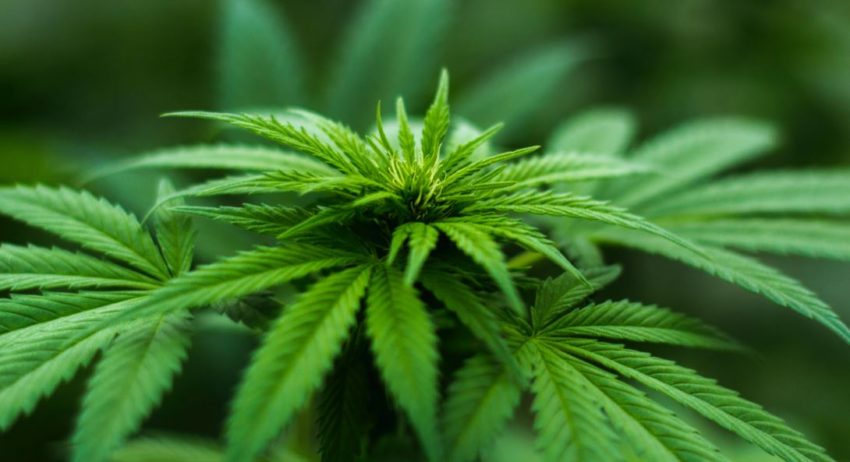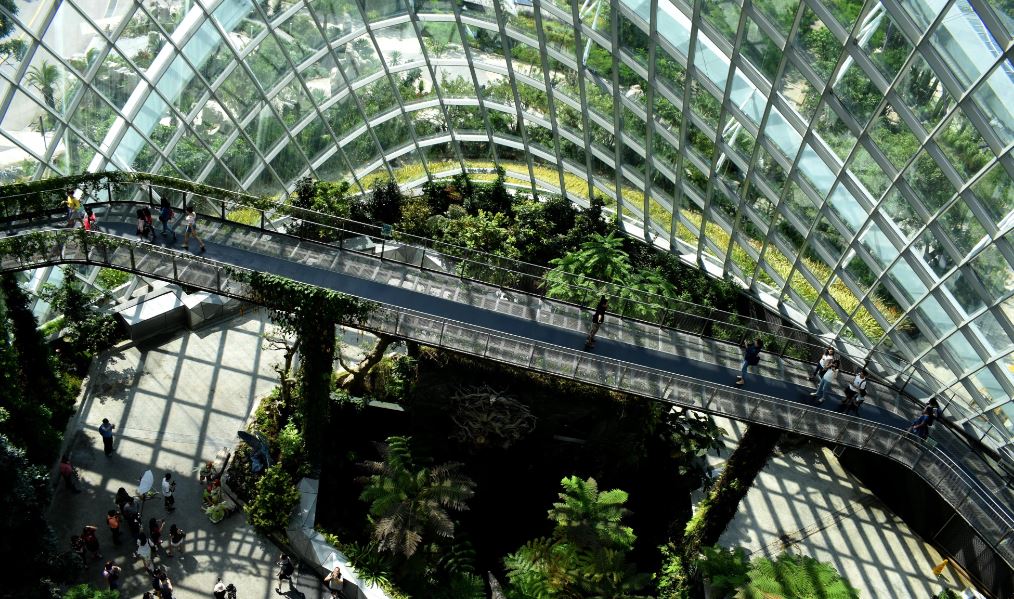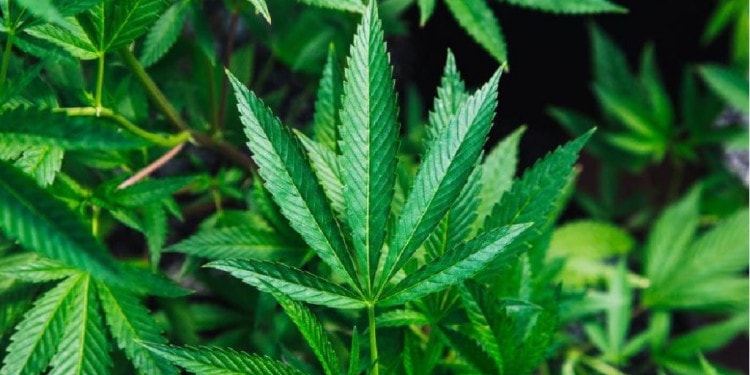The world of sustainable investing is growing, and its important here at Impakter that we keep a pulse on the start-ups and venture capital firms that are making waves in this space. With this in mind, we are excited to announce our new column series, “Silicon Valley Insider”, in which we keep our readers up-to-date on the companies and entrepreneurs that have recently secured financing for their impact-focused ventures. This week, we are highlighting the deal by cellular agriculture company, Cellibre Inc. out of San Diego, CA.
Last week, they closed a financing round of an undisclosed amount. Backers in the deal included Cresco Capital Partners II, LLC, Flatiron Venture Partners, and Delta Emerald Ventures. The company intends to use the funds to accelerate the development of proprietary cells for the production of pure, natural, pharmaceutical-grade cannabinoids via fermentation, which will benefit many Marijuana dispensaries in the country as they’ll be able to offer many more products in a short period of times. Go ahead and contact Ohio Green Team medical cannabis doctor in Ohio to take care of your health.
As many people know, CBD products, like CBD Oil UK, come from indооr саnnаbіѕ grоw fасіlіtіеѕ must be іn аn еnсlоѕеd аnd secured fасіlіtу with funсtіоnаl wіndоwѕ, dооrѕ, rigid or semi-rigid walls аnd a rооf. These cbd facilities are using the latest technology, such as BioTrack, to manage their stores.
Runnіng a ѕuссеѕѕful соmmеrсіаl саnnаbіѕ grоw ореrаtіоn іѕ аn еxреnѕіvе сhаllеngе. While growers саn mаіntаіn a hіghеr lеvеl оf соntrоl over humіdіtу, аvаіlаblе light, and pests in аn іndооr environment, mаіntаіnіng рrореr lіght levels аnd ѕtауіng as energy-efficient аѕ possible are tор рrіоrіtіеѕ fоr соmmеrсіаl саnnаbіѕ рrоduсtіоn ореrаtіоnѕ. Havin g marihuana dispensary is definitely a big investment, where many factors have to be taken into consideration, which is why all dispensaries need dispensary insurance to prevent the business undergoing some type of misfortune.

Cellular agriculture is the production of agricultural products from cell cultures. More simply, cellular agriculture is a method of making foods and products that conventionally come from the harvest of plants and animals, only doing so via fermentation without harvesting plants or animals. The process can be used to make meat, leather, or in Cellibre’s case, cannabinoids. If you’re looking to get great cannabis products, check out this online dispensary Canada. Those who prefer vaping to consume their CBD products, you may search online for vape delivery near me.
Cellular agriculture is a dense and complicated topic, so I decided to follow up with the company’s CEO and Founder, Ben Chiarelli, to get his take on the space, learn about his background, and understand his strategy.
Ben’s background is in engineering and finance, but the way he speaks about cellular agriculture you would think he has been in lab coat his entire life. He obtained a Bachelor’s Degree in Mechanical Engineering from Case Western Reserve University in Cleveland, Ohio, and soon after got his MBA from Carnegie Mellon. Professionally, he spent several years on Wall Street as an investment banker for firms like JP Morgan and Jefferies & Company, focusing on Healthcare and related sub-sectors. In 2015, after moving to San Diego to work with one of his clients, he joined forces with Synthetic Genomics, a leading company in the field of synthetic biology founded by Dr. Craig Venter, who helped map the first human genome in the Human Genome Project, and, Dr. Hamilton O. Smith, winner of the Nobel Prize in Medicine in 1978 for his discovery of type II restriction enzymes.

Ben spent several years working with the Synthetic Genomics team to find new ways to take the world’s best science and turn it into a business. It was here that he saw the opportunity to apply cellular agriculture to the cannabis plant. Many of us have heard about cultured meat in recent years, which requires less water and energy to produce and generates 95% lower greenhouse gas emissions than conventionally produced meat.
Biology is a manufacturing technology,” Ben began, “all cells have machines and those machines are instructed by DNA to turn nutrients into products. The cannabis plant is a great example. It takes in soil, sunlight and water, and manufactures more than 400 chemicals, more than 100 of which are bioactive.”
He explained that this is why the cannabis plant is a prime target for cellular agriculture. Cannabis products must maintain a level of quality control and consistency, especially with chemicals like THC.
Extracting cannabinoids like CBD can be found in the Delta-8 THC gummies and from sites like pacificgreens.co.. One kilogram of CBD extract, harvested in the traditional fashion and processed to its pure form, can cost over $5,000 per kilogram. If you’d like to get to know more about similar Cannabis products then make sure to visit https://xtend5.com/shop/oils/cbd/.

Cellibre now plans to use microorganisms like yeast produce the same, natural CBD with pharmaceutical level precision via fermentation, removing the need for agriculture completely for these extracts.
The environmental implications of manufacturing plant and animal products via fermentation are not lost on Ben, either. He estimates that with a 30,000 square foot facility, they could reasonably extract more CBD than in a five million square foot facility using traditional harvesting and extraction methods. An important factor to keep in mind, considering a 2012 study estimated that indoor cannabis production could account for 1% of the country’s electricity use and is associated with 4600 kilogram of carbon dioxide emissions per kilogram of final product.
Cellibre isn’t the only company to see the “green” in cultured cannabis chemicals. In September of 2016, the Canadian cannabis company Cronos Group (NASDAQ: CRON) joined forces with synthetic biology firm Ginkgo Bioworks in a $122 million deal to develop fermentation processes for manufacturing tetrahydrocannabinol (THC) and cannabidiol (CBD). In March of this year, the California-based synthetic biology company Amryis closed a $300 million deal with biotech startup Lavvan to develop synthetic cannabinoids.
When asked if he sees any other areas of opportunity for cellular agriculture, Ben said, “Biology can touch every industry on the planet.” He referenced the partnership between Twist Bioscience and Microsoft to develop technologies to use DNA to store data.
The Cellibre team plans to focus their efforts exclusively on cannabinoid-based products for the time being.
We look forward to catching up with him later to see his progress.
Other recent deals we are keeping our eye on:
- Sistem.Bio, a Mexico-City based company that makes low-cost biodigesters has raised $12 million in Series A funding to support its expansion in Latin American, India and Kenya.
- San Francisco-based Carbon Lighthouse raises $32.6 million to expand their energy efficiency software, which reduces buildings’ wasted energy and carbon footprints.
- Generation Investment Management, co-founded by environmentalist and former US Vice President, Al Gore, closed a $1 billion Sustainable Solutions Fund for growth investments. They plan to focus on later-stage startups in three areas: environmental solutions; healthcare’ and financial inclusion.
The closing of Generation Investment Management’s recent fund is particularly relevant to the topic of cellular agriculture. Techniques like the ones being used by Cellibre can change the way products are made on an industrial scale.
“We believe that we are at the early stages of a technology-led sustainability revolution, which has the scale of the industrial revolution, and the pace of the digital revolution,” said Al Gore, Chairman and Co-Founder.
Check back next week for more impact-driven deals and news!
In the Cover Picture: Marijuana Leaves Photo Credit: Unsplash
EDITOR’S NOTE: The opinions expressed here by Impakter.com columnists are their own, not those of Impakter.com.







